
No part of the media business is recession-proof. But, if anything comes close, it may be luxury journalism targeting high-end advertisers and an audience more insulated from the economic cycle.
Ahead of a possible recession and with a cost of living crisis already underway, The Times created a dedicated luxury channel on its website for the first time in November citing significant demand from both advertisers and readers.
Meanwhile, the Financial Times’ 29-year-old How To Spend It had a timely rebrand last year as HTSI – allowing the ‘S’ to mean anything the reader wants, such as perhaps style, save, steer, surf or savour.
And Press Gazette’s parent company New Statesman Media Group is continuing to prize its three luxury brands Spear’s, Elite Traveler and World of Fine Wine for being a “safe pair of hands for brands’ budgets” who want to get in front of sometimes hard-to-reach high-net-worth individuals.
The Times takes luxury online
Kate Reardon, who has been editor-in-chief of Times luxury magazine Luxx since 2018, tells Press Gazette the brand was doing “commercially incredibly well” in print but that its partners were demonstrating an “almost hysterical demand” for a digital solution as well. “We love the print, it’s beautiful, but we want more,” she recalls they routinely said.
Luxx was originally launched as a quarterly supplement of The Times in 2007 but was dropped six years later. It was then revived in 2016 to address the needs of the newspaper’s “affluent and influential audience”.
The brand – including on its new online home – claims to cover all parts of the luxury market, including, it said, fashion, watches and jewellery, design, property, motoring, travel, philanthropy, food and wine, aesthetics and grooming, as well as sustainability and technology.

Giving the example that one issue could contain six pages on watches alongside a piece on the luxury of grief, Reardon says: “We’re talking to our readers’ whole psyche, not just the part that fancies a new handbag.
“You don’t get to be the most successful maker of handbags or watches or jewellery in a massively saturated and competitive market without a profoundly analytical and intellectual approach to what you’re selling and passion for craftsmanship.
“We can’t just chuck diamonds on something and expect rich people to fall for it. So the brands that we work with, our commercial partners, are some of the most sophisticated people in the world. So they massively appreciate this approach.”
The move into online has gone equally well, with Victoria Trimmer, client director – fashion and luxury at The Times, telling Press Gazette: “Clients have fed back that they feel our investment into well-crafted, digital storytelling around luxury comes at a perfect time for them.” Luxury as a commercial category at The Times “has been performing very well” and they are “continuing to see growth,” she adds.
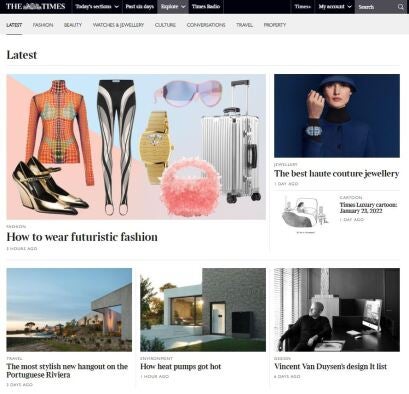
The new approach could also benefit The Times’ subscription strategy, Reardon says. Because Luxx content was historically behind the paywall along with the rest of the site’s content, the team could see that their luxury readers visit The Times more frequently, spend more time on the website and consume more content compared to the average subscriber.
Content on the dedicated luxury channel is now free-to-read outside the paywall to harness this “huge opportunity”. Reardon explains: “We know that this content plays incredibly well and we also know that people who are interested in this type of content are likely to sign up as subscribers.
“So it works in terms of numbers for us for our commercial partners, but it also works in terms of recruiting new subscribers to The Times.”
They can also make the most of these engaged luxury readers with invitation-only events, beginning at the end of January with Daniel Finkelstein and Hugo Rifkind speaking about the luxury of truth.
“The advantage we have is that the passionate Times readers are passionate about Times writers,” Reardon says. “So whereas every brand on God’s sweet earth has been told they have to do real-life events, they’re all slightly scrabbling around for the same pool of speakers or celebrities or whatever to talk or to entertain their customers.
“The Times readers have our writers’ voices in their heads in a very, very intimate way, often every day of the week, so for them to have the chance to meet them in a very intimate setting is extraordinary.”

Reardon began working in fashion and luxury 35 years ago, starting at Vogue when she was 19.
“The rich are, to a certain extent, vaccinated from the worst vicissitudes of economic crises,” she says. “They have money to spend. They want to spend it on themselves. They don’t want to spend it frivolously. So they really appreciate and are seeking out extraordinary design and craftsmanship, which I think is why we’re seeing companies like Hermès really knocking it out of the park in terms of their numbers.
“I think people at the moment who have money to spend on these products and experiences are less interested in fashion per se. At this moment in time, they’re more interested in craftsmanship, quality, heritage, design and pieces that will hold value,” she adds, explaining that this is where publishers can come in if they build trust in their curation, editing and values.”
Financial Times rebrands luxury away from spending
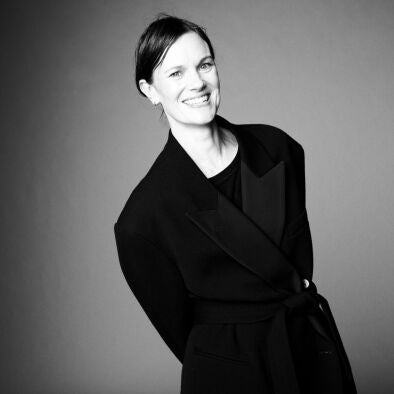
Another national news publisher coming out of a period of evolution at its luxury strand is the Financial Times, which has also found that giving readers a rounded, thoughtful range of coverage works – and that the rebrand from How To Spend It to HTSI last year helped.
HTSI editor since 2019 Jo Ellison explains to Press Gazette that luxury “remains absolutely the core of what we do, and what we represent” but that the “interpretation of what luxury is has changed”.
“Luxury today is as much about a sprig of mimosa displayed in a handcrafted ceramic vase, or a loaf of sourdough, or a community as it is about fine jewellery and watches.”
Although there was some initial scepticism to the rebrand, “on the whole the transition was incredibly seamless and organic, especially among our overseas readers,” she says.
The commercial response was “very positive” and led to HTSI’s most successful year to date. “My overall impression was that the shift was well overdue,” Ellison says.
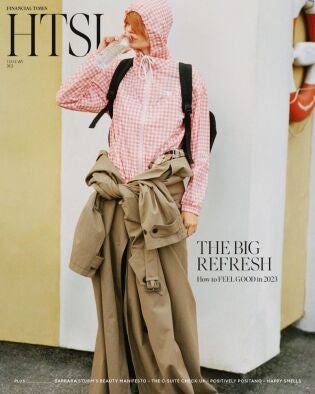
“The HTSI team and contributors live in the real world and they have the same financial preoccupation as any other normal person. To some extent, I think this works as its own taste barometer when we are planning content. Nevertheless, we are all unapologetic escapists, who want to show readers the best things in life.”
Despite this bullishness about the role of luxury in tough times, Ellison does not want to make too much of it.
“I don’t like to tempt fate,” she says. “As soon as you assume something is ‘recession-proof’ you get bitten in the ass. We are very fortunate to have very long standing and very loyal relationships. Long may they last.”
Private jets and responsible luxury
Feeling “pretty punchy” about the next year or two in luxury lifestyle spend, however, is New Statesman Media Group editorial director Thea Halstead, who has worked in the luxury sector for 17 years starting at The Superyacht Group.
Elite Traveler, one of NSMG’s luxury brands, made its own shift towards “responsible luxury” in 2021 when editor-in-chief Alex Martin told readers: “Our in-house research has shown us that the majority of our readers consider environmental and social issues as hugely important. You want to spend your money where it will do the most good, or at the very least do no harm.”
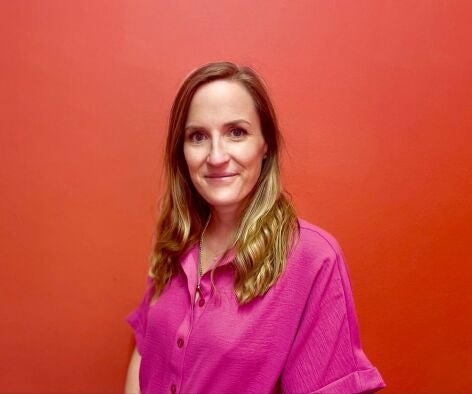
Halstead tells Press Gazette this industry-wide “move away from conspicuous consumption at the very top of the wealth pyramid” has been the biggest change in the sector she has seen in her career so far.
“Instead a trend for authentic, sustainable, off-the-beaten-track kinds of experiences has emerged over the last few years, compounded by the pandemic,” she says.
The print edition of Elite Traveler, which launched in 2001, is distributed on private jets and in first-class lounges. New Statesman Media Group also owns Spear’s, a wealth, business, culture and luxury lifestyle magazine aimed at ultra high-net worths and the people who advise them since 2006, and The World of Fine Wine, a quarterly title that has been around since 2004.
Halstead says that although each of these has a different market and subject matter, they all have key ingredients in common that have helped them stay commercially successful. One is that they have all been publishing for around 20 years or more and have built up a loyal readership.
They all still produce print publications, which Halstead acknowledges “seems odd for this day and age but if you look at the reader demographic makes total sense in terms of how our readers want to consume media and how we can serve them our content (sat in first class on a Eurostar train, or on board a private jet where their attention is almost guaranteed)”.
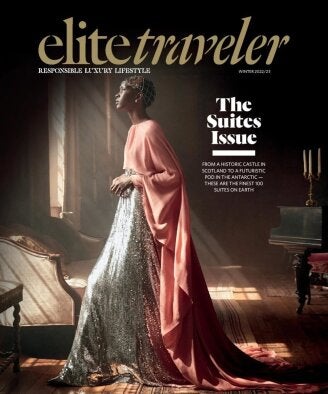
And they each have an editorial team whose, Halstead says, “entire mission is to have their fingers on the pulse on what is new, interesting, exceptional and exciting in their spheres”. It is important, she adds, that they are “collaborative, they’re authoritative within their beats and they love their products” – meaning people want to work with them.
Halstead also notes that brands now respond to economic uncertainty differently. During the 2008 recession, when she worked in the superyacht industry, she saw a reduction in advertising spend across the board but does not expect the same impact this time.
“I think the way businesses view marketing budgets has shifted and has become more sophisticated, whereas back in 2008 slashing a marketing budget was a standard response to any economic uncertainty – but I don’t think we’ll see such a cut-and-dry approach to it all this time round,” she predicts. “And generally luxury brands withstood the economic turmoil caused by the pandemic remarkably well.”
Halstead adds that there is one thing luxury brands can work on to protect themselves, however: “I think one of the challenges we’re going to face – and one I meet with enthusiasm and vigour – is the technology side of things.
“Meeting our clients’ needs for more innovative, sophisticated and integrated advertising solutions that will continue to engage with their audience, attracts a new generation of loyal customers, and helps set them apart from the competition.”
Email pged@pressgazette.co.uk to point out mistakes, provide story tips or send in a letter for publication on our "Letters Page" blog
